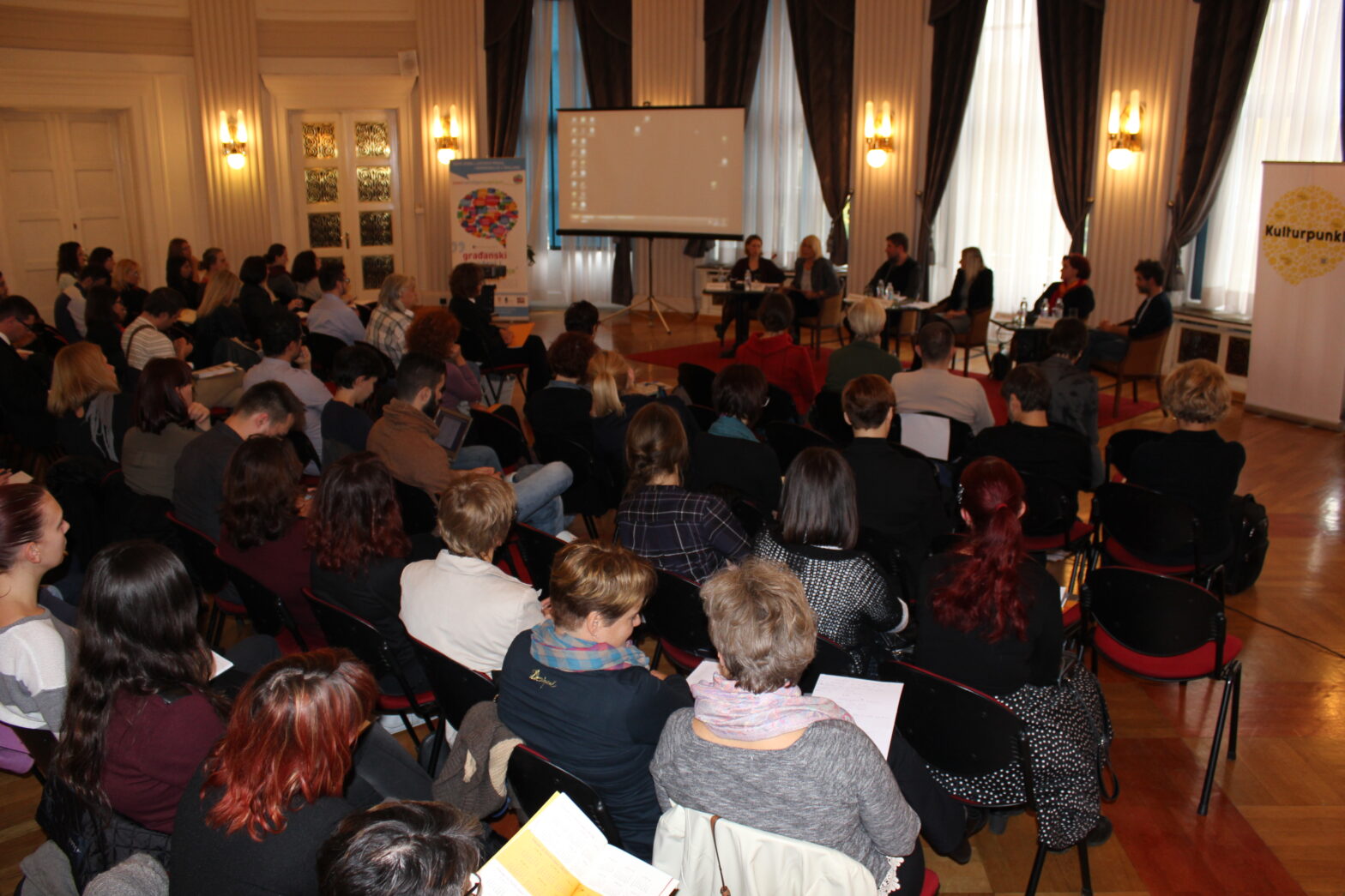The conference between freedom of speech and hate speech – media literacy in the education system and society was held on October 16, 2015 at Journalists House, Perkovčeva 2, Zagreb. It is held with the financial support of the fund “Alumni Engagment Innovation ” of the US State Department, the program centers on knowledge of the National Foundation for Development, Knowledge Centers program of the National Foundation for Cvil Society and the EU program “Europe for Citizens.”
The first panel of the conference was organized by GONG and Kurziv included the problems and challenges of the media system in Croatia and the region. After the opening statements, the moderator, Antonija Letinić, opened a debate on the “weak links ” in the Croatian and regional media systems.
The second panel of the conference, which was moderated by Martina Horvat, was dedicated to media literacy, its definition, importance, and compnents. She introduced programs and opportunities for media education boht within schools and non-formal programs.
Workshops were held in the afternoon open to all who were interested. The workshop on the prevention of hate speech on social networks through educaiton programs led by Lidija Kralj, participants dealt with specific examples of hate speech and preventive action for teachers in the case of such speech.
The workshop on stereotypes, prejudices and covert advertising was led by Lana Ciboci, where the participants, included primary and secondary teachers as well as former employees in the advertising industry, through journals OK and Teen preseonted findings on how children are affected by the media and what teachers can do about it.
The workshiop on populism and the media as a threat or a corrective agent for democracy was led by Berto Šalaj. This workshop discusssed the role of the media in the dissemination of political, whether populism is a positive or negiative phenomenon, and how to distinguish between “left-wing ” and “right-wing ” populism. The workshop ended with the conclusion that the media can facilitate populist discourse, but can be a generator of populism itself.
The media presentation of anti-fascism in the region included the importance of checking facts and the daily journalistic work methods, which were concluded to be useful and a method of operation in schools. The workshop deal with topics concerning the questioning display of anti-fascism and modern fascism. The hearing was attended by Dušan Jordović and Siniša Dedeić from Istinomjer.rs, Tijana Cvjeticanin and Aida Ajanovic from Istinomjer.ba, along with Xhabir Memedi Deralla and Brankica Petović. All of the participants reported examples in the region of a common relativizing of facts, revisionist history, and questioning of the individual and personal interpretations of fascism and anti-fascism. Also, one of the conclusions of the workshop was that there is no objective journalism, objectivity may have methods and facts, but nevertheless it is necessary to clearly understand the values.
The conference and workshop concluded with Martina Horvat pointing out tha the idea of the meeting was to encourage reflection on the importance of media literacy as well serve to as an introduction to civic education, which is a part of media literacy in the curriculum.
This article was published thanks to co-funding from the Europe for Citizens Programme.

